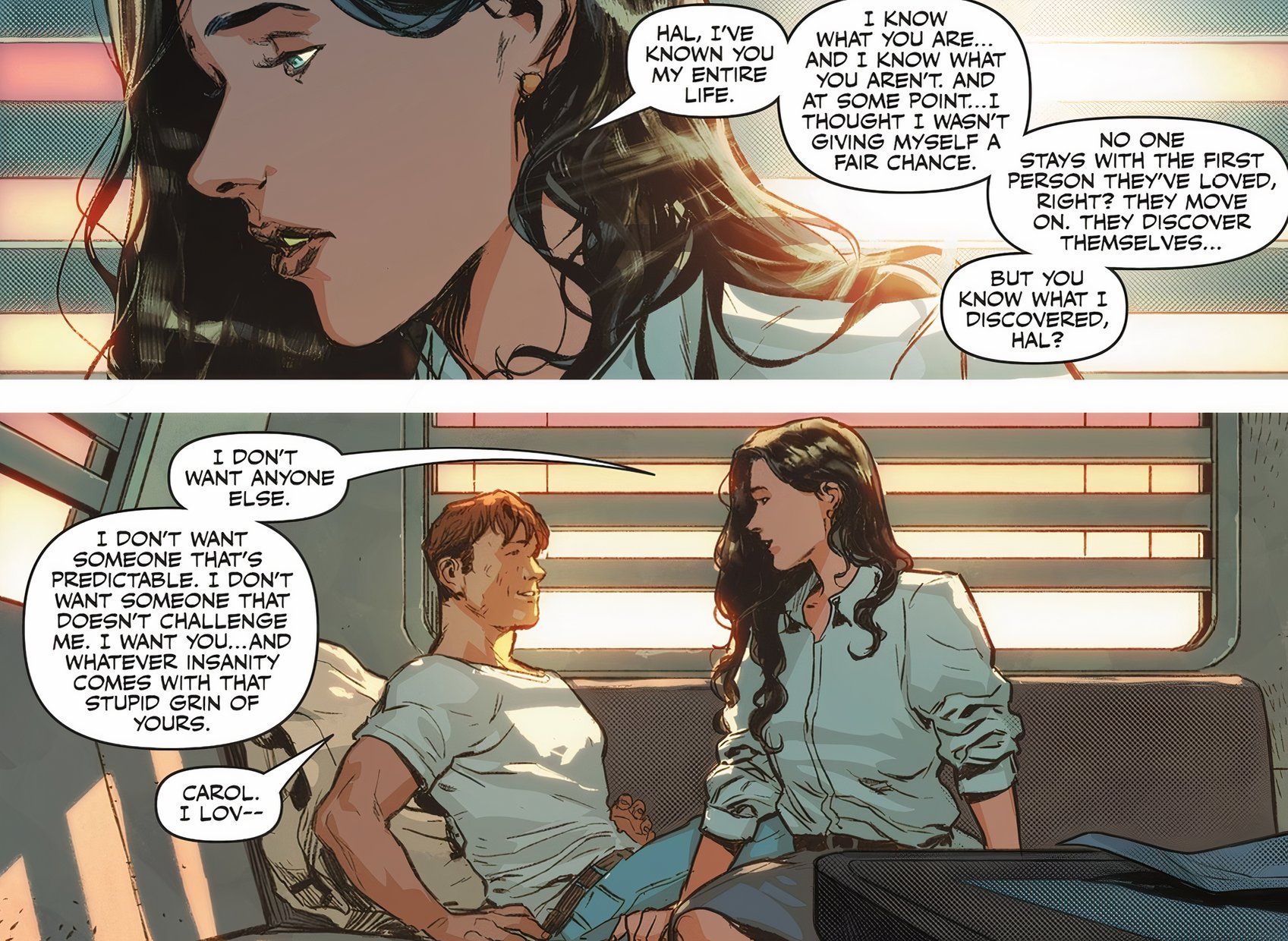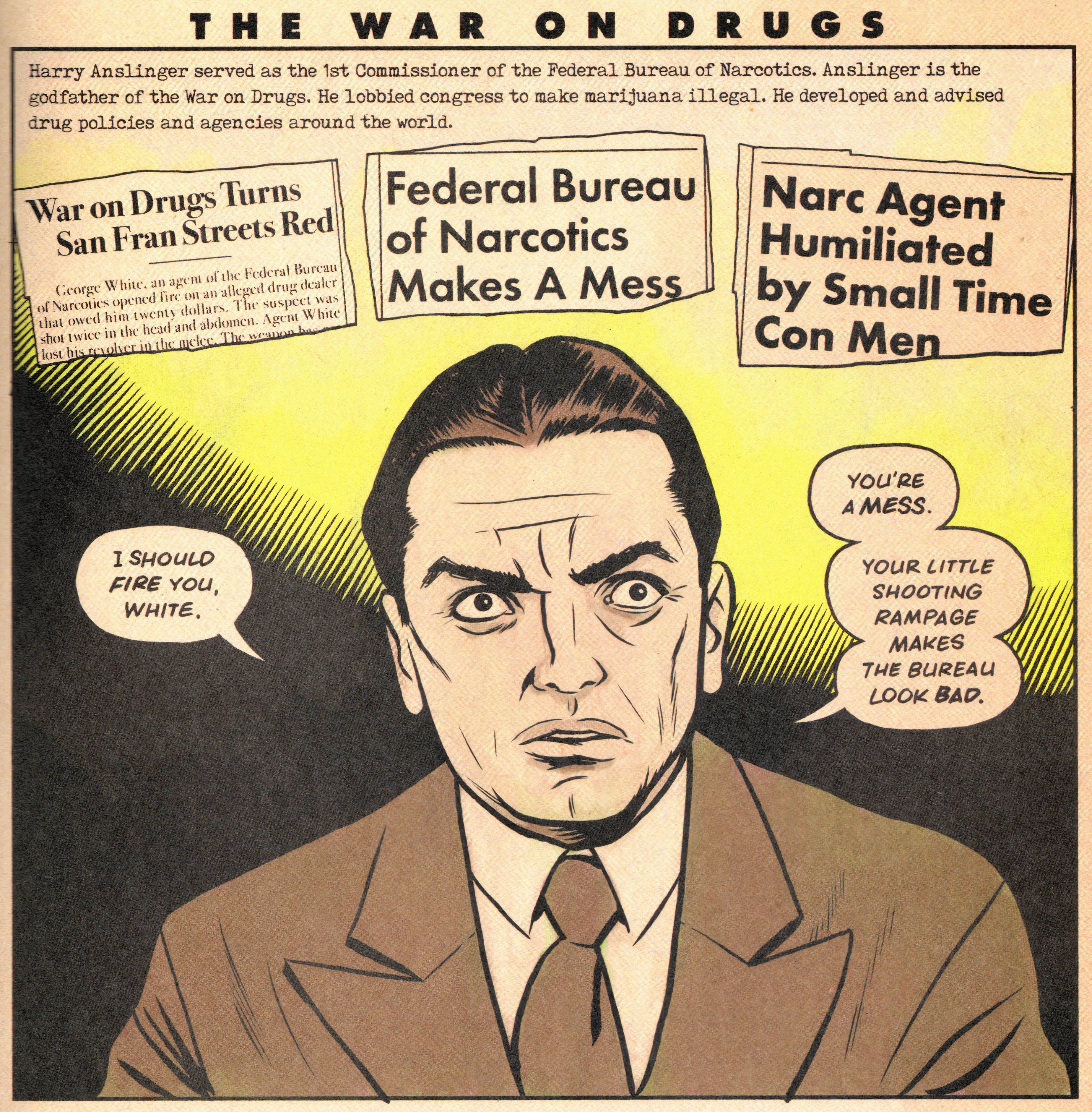ALF’s parodies of the X-Men are as over-the-top as the sitcom ever got; to this day, they remain as absurdly hilarious as they were at the time of their release. Along with its cult-favorite TV run in the late 1980s, NBC’s ALF had an ongoing comic series, released by Marvel Comics – something that gave its creative team the perfect opportunity to parody the publisher’s most famous franchise.
ALF #22 and #44 – written by Michael Gallagher, with art by Dave Manak – featured the series’ extensive X-Men parodies, each of which poked fun at Marvel’s mutants, at the peak of the franchise’s ascent to the top of Marvel’s depth chart under the auspices of legendary writer Chris Claremont.
ALF’s send-ups of the iconic ’80s X-roster are a frenetic mix of food-based puns, and comedically out-of-left-field free association. As intentionally silly as the jokes may have been, they also displayed the creative teams’ keen insight into X-Men lore at the time.
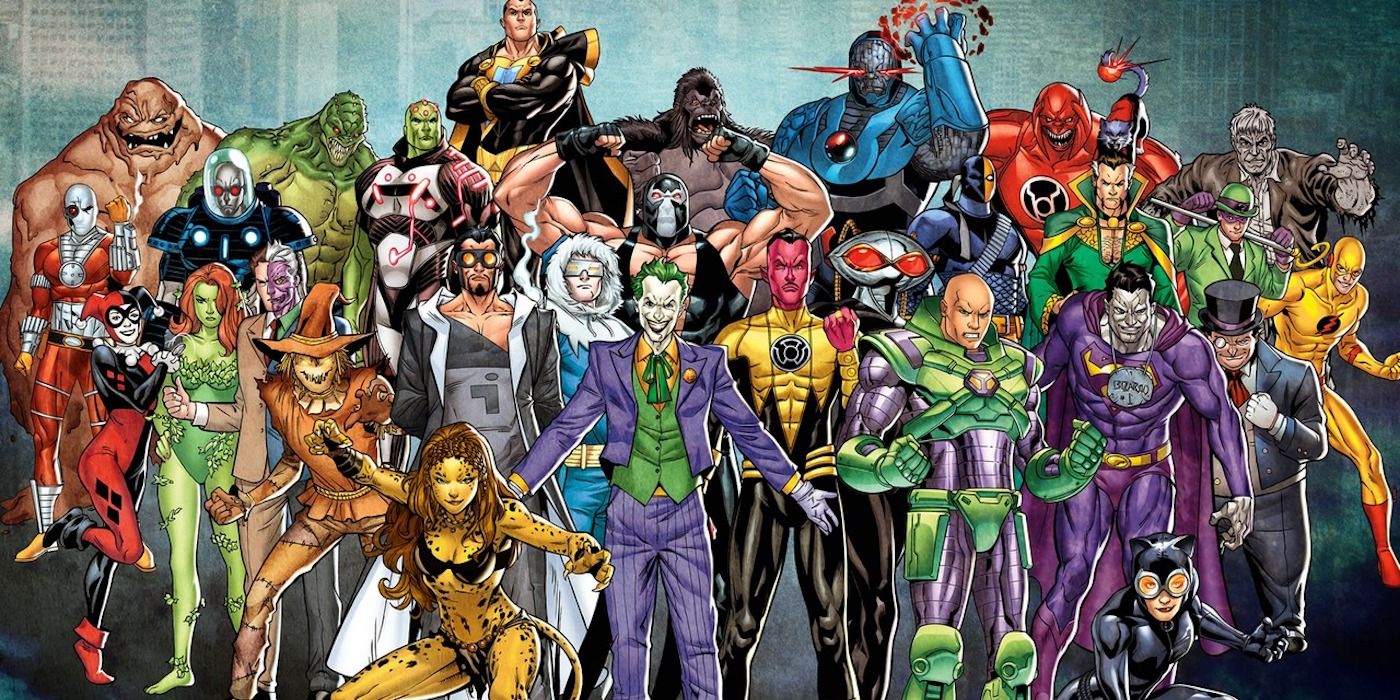
Related
This Major DC Villain Was Designed As A Parody of Marvel’s Most Controversial ’90s Artist
According to a prominent DC villain’s creator, the character was designed was designed as a direct jab at the artistic style popularized by Marvel.
ALF Comics’ X-Men Parodies Are Absurd – And That Makes Them Memorable
ALF #22 – Written By Micheal Gallagher; Art By Dave Manak; Ink By Marie Severin
Fans of ALF will recognize the series’ humor in the comic book version, except with the dial on absurdity cranked past eleven and then broken off. This was, of course, the benefit of transposing ALF from television to comics; though conceived of in, and designed for, the TV medium, the confines of a sitcom set, and ALF’s nature as a puppet, necessarily limited the kind of stories the series could tell. Marvel’s ongoing ALF series, naturally, took advantage of the comic medium’s lack of restraints.
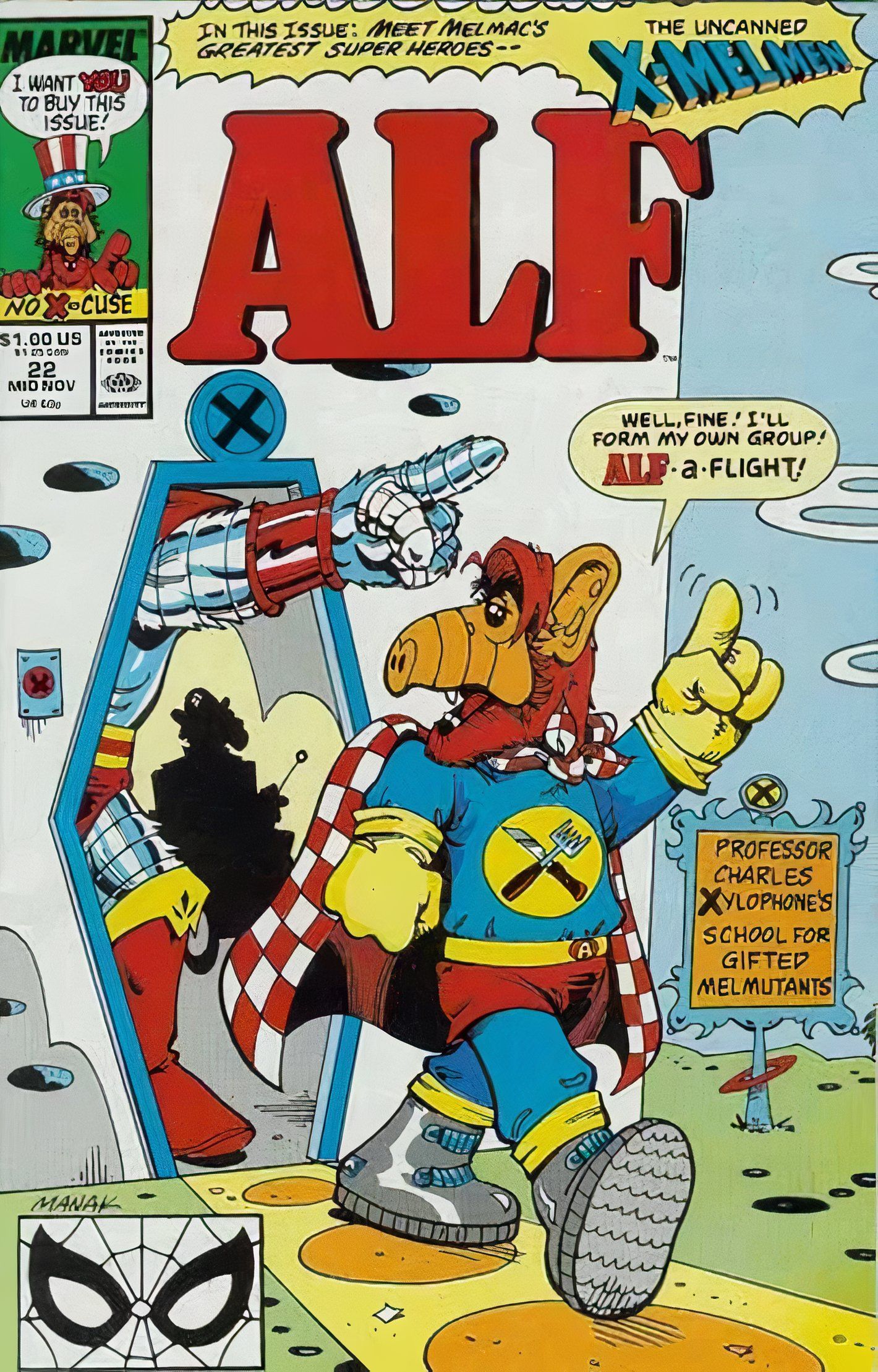
The series’ X-Men parodies are wild flights of fantasy, reimagining the franchise’s most famous mutants in a gleefully childish way. ALF #22, first introduced to “Magmeato,” a Magneto-analogue who, as astute readers can likely infer, controls meat, rather than metal. The eponymous extraterrestrial then encounters “Professor Xylophone” and his “Uncanned X-Men.” Following the narrative rule of escalation – as important in comedy as in drama – each twist on a familiar X-Men character is more ridiculous than the last. However, at the same time, the issue, and its sequel ALF #44, feel very grounded in the formula of X-Men storytelling.
As a humor-driven comic, ALF packs a lot of jokes into a tight space; especially with direct references like its X-homages, each panel overflows with visual and narrative references. Just as with the TV series, ALF comics relied heavily on cultural reference points for its jokes. Parodying X-Men was a great way to do this more extensively than the television show was able, while also acknowledging the comic medium – and poking fun at another one of the series’ publisher’s titles, something very apropos for ALF.
The “Uncanned X-Melmen” Were ALF Comics’ Greatest Riff
ALF #44 – Written By Micheal Gallagher; Art By Dave Manak; Ink By Marie Severin
While the X-Men parody in ALF #22 comprised just one of the issue’s several segments, ALF #44 returned to the concept for a full issue, offering further chapters in the tale of the “Uncanned X-Melmen.” The series’ creative team extended their riff on Marvel’s mutants by adding characters like “Emma Defrost,” and “Nightcaller,” while lampooning the iconic Dark Phoenix Saga by recasting her as “Dark Kleenex.” As on-the-nose as the joke might feel, this was always part of ALF’s charm, and as it did consistently throughout its run the ALF comic series playfully elaborated on that tendency.
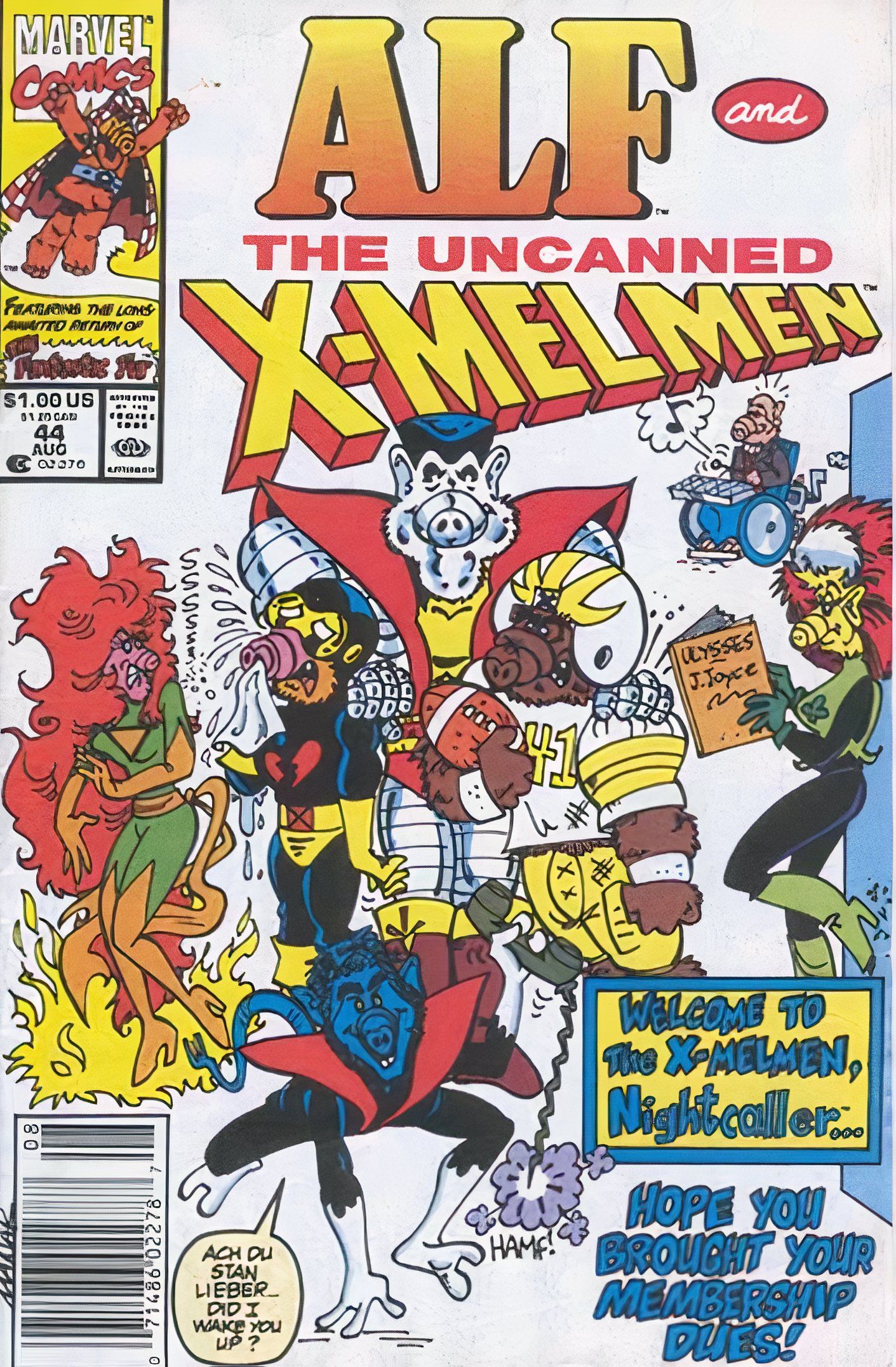
Anyone seeking a nostalgic glimpse into the landscape of late 1980s comics – and of course, fans of ALF‘s TV run – will find a lot to enjoy upon revisiting Marvel’s ALF series, but its X-Men parodies are without a doubt its greatest contribution to pop culture. The stories which hewed closer to the sitcom are an amusing window into the era, but there is something that elevates its take on the X-franchise. ALF‘s silly renderings of the ’80s X-Men were a reaction to the success of Marvel’s mutants, which grew steadily throughout the decade.
Starting in the 1970s, Marvel’s roster of X-Men writers salvaged what was an almost forgotten property from the previous decade, over time revitalizing it and turning it into the company’s most successful title. The publication of the ALF comic series coincided with the continued upward trajectory of X-Men; the creative decision to offer an extended goof on the franchise makes it clear how ubiquitous the X-roster would have been in comic fans’ minds at the time. It also strongly indicates that the creative team behind ALF were X-Men fans themselves.
ALF’s X-Parodies Showcased Deep Knowledge Of The Franchise’s ’80s Lore
And Love For The Comic Medium
There are, of course, just as many parodies born of affection as there are those that stem from derision. Which motivation underlies a particular parody is usually evident in how it treats its source material. In the case of ALF’s X-Men parodies, it seems clear that writer Michael Gallagher and artist David Manak were enthusiastic fans of what Chris Claremont and Marvel’s other X-writers were doing in their work. The jokes in ALF #22 and #44 are products of authors deeply familiar with the era’s contemporary X-Men lore.
Of course, ALF was a Marvel title, meaning the publisher would not have allowed an unwarranted, meanspirited attack on its top franchise, especially not from a comedy series, one which skewed toward a younger audience. Nevertheless, it is important to note that ALF’s X-Men parodies were crafted with affection. The parodies were specifically designed to offer benignly irreverent jokes in the patented vein of ALF, something at which they roundly succeeded. Beyond that, they were intended to bring further attention to the X-franchise, an intention that likely also paid some dividends.
It is fascinating, for instance, to consider the possibility of at least a few ALF readers, during its original run, actually discovering X-Men through the series’ parodies. While that may only be conjecture, it speaks to the broader idea that fandom can arise from unexpected vectors –from a kid reading ALF, to a teenager obsessed with X-Men. For modern readers, ALF and the series’ X-Men parodies are a fascinating throwback to an iconic era in comic book, and pop culture, history.
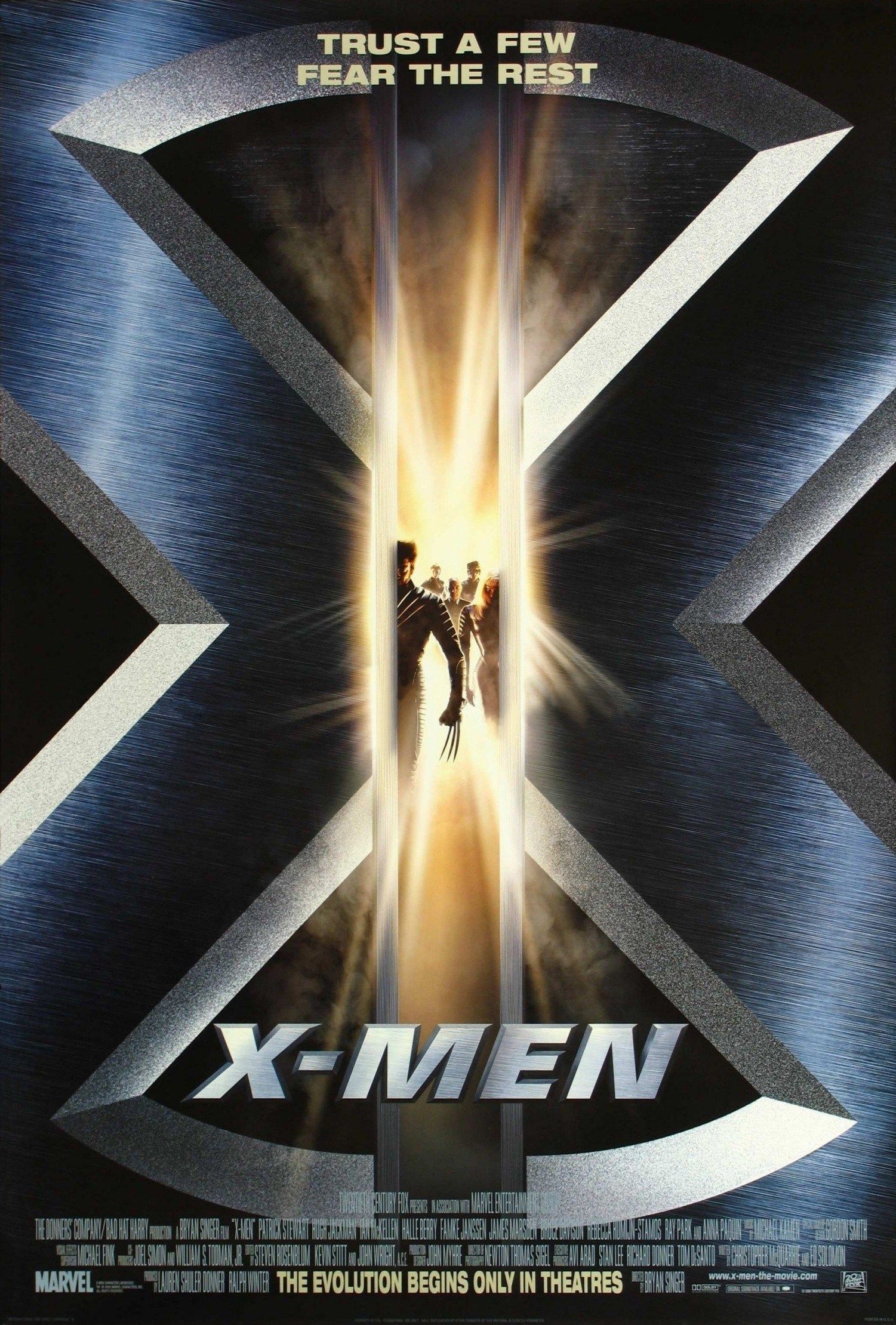
X-Men
The X-Men franchise, created by Stan Lee and Jack Kirby, centers on mutants with extraordinary abilities. Led by the powerful telepath Professor Charles Xavier, they battle discrimination and villainous mutants threatening humanity. The series explores themes of diversity and acceptance through a blend of action, drama, and complex characters, spanning comics, animated series, and blockbuster films.

